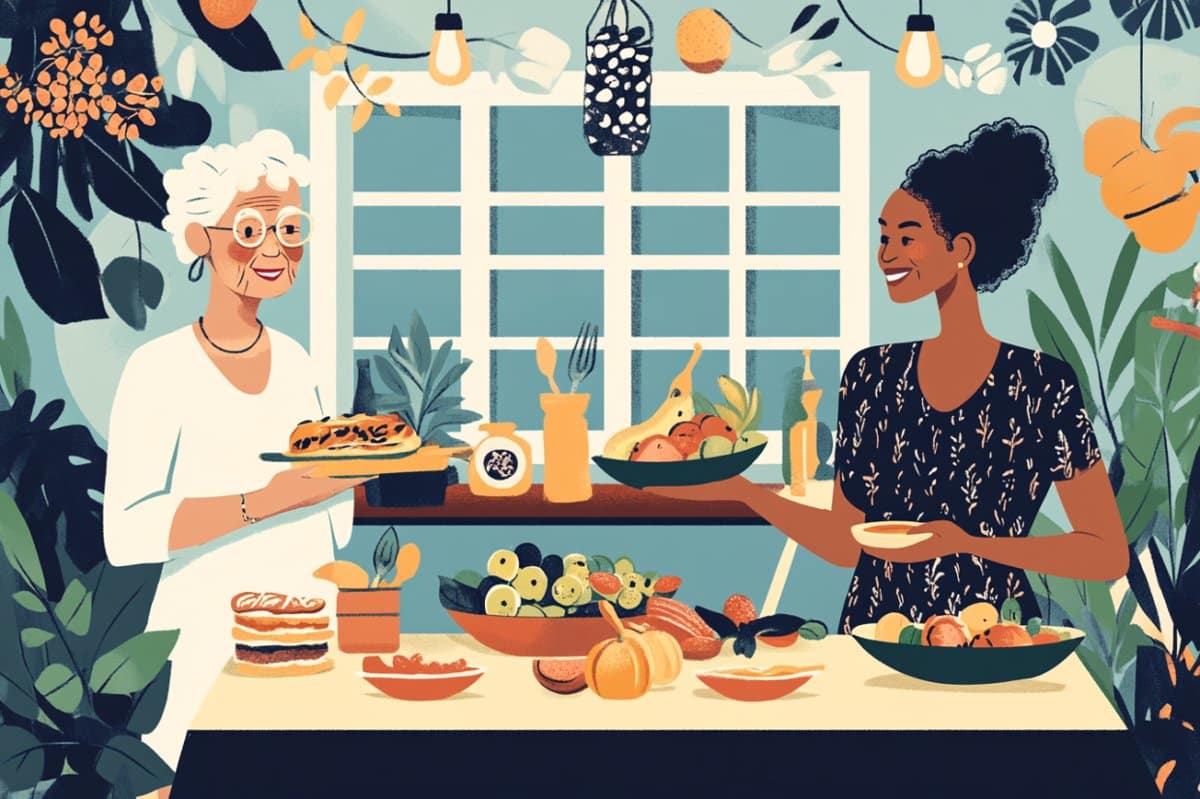Summary: A new study finds that older Canadian women who remain socially isolated over time are more likely to consume fewer fruits and vegetables, reducing their overall diet quality. Using data from over 30,000 adults tracked for six years, researchers discovered that sustained social engagement—especially through varied activities—was linked to healthier eating.
Women who regularly participated in diverse social activities such as volunteering or attending events maintained better dietary habits. However, even those who became socially active after prior isolation still experienced dietary decline, suggesting that the type and timing of activity matter.
Key Facts:
- Long-Term Isolation: Persistently isolated women consumed fewer fruits and vegetables.
- Social Variety Matters: Diverse, meaningful social engagement supported better diet quality.
- Late Socialization Risks: Becoming socially active later didn’t fully reverse dietary decline.
Source: University of British Columbia
A new UBC study finds that persistently isolated older Canadian women are more likely to fall short of recommended fruit and vegetable intake, leading to poorer overall diet quality.
Researchers used data from the Canadian Longitudinal Study on Aging (CLSA), which tracked 30,097 adults over six years, to examine how long-term social patterns impacted eating habits.

“We know social isolation reduces life expectancy, but most studies capture it at a single point,” said Dr. Annalijn Conklin, senior author and associate professor at UBC’s faculty of pharmaceutical sciences.
“We wanted to understand the effects of persistent or changing isolation over time.”
Published in Nutrients, the study also looked at the range of social activities participants engaged in, such as visiting friends, volunteering, attending club meetings or educational events or playing sports.
Women who enjoyed a variety of these activities were more likely to maintain a healthier diet, while those who engaged in fewer, or stopped altogether, showed declines.
“Different activities provide unique social, cognitive or physical stimulation that can support better eating habits,” said Dr. Conklin. “It’s not just staying busy; it’s staying meaningfully connected across a variety of settings.”
Not all social activity is equal
Interestingly, women who became socially active after a period of isolation still experienced a decline in diet quality by the six-year mark.
“The type of activity probably matters,” said Dr. Conklin.
“Some settings—like poker or bridge—may increase snacking or alcohol consumption, and so transitioning to social activity may actually end up posing dietary risks.”
Why it matters
This research adds to a growing body of work from the Conklin Lab, including recent studies on social isolation and diversity in older Canadians and the lack of high-quality research on gender and changes in social ties as determinants of hypertension.
“Our study is one of the first to look at how social variety plays a role in long-term well-being,” said Dr. Conklin.
“Results highlight the broader social determinants of women’s health. Older women, who often play multiple roles—as a partner, a mother, a community organiser—are particularly vulnerable when those connections fade.”
As Canada’s population ages, Dr. Conklin believes these insights can help shape more effective public health initiatives.
“I hope this work informs social prescribing and care models for older adults. It’s not enough to tell people to ‘get out more.’ We need to understand which activities actually support healthy habits and tailor advice for women and men accordingly,” said Dr. Conklin.
About this social neuroscience and diet research news
Author: Lou Corpuz-Bosshart
Source: University of British Columbia
Contact: Lou Corpuz-Bosshart – University of British Columbia
Image: The image is credited to Neuroscience News
Original Research: Open access.
“Gender, Adverse Changes in Social Engagement and Risk of Unhealthy Eating: A Prospective Cohort Study of the Canadian Longitudinal Study on Aging (2011–2021)” by Annalijn Conklin et al. Nutrients
Abstract
Gender, Adverse Changes in Social Engagement and Risk of Unhealthy Eating: A Prospective Cohort Study of the Canadian Longitudinal Study on Aging (2011–2021)
Background: Social isolation is linked to survival and health. However, dietary effects of social activities, and gender differences, over time are unknown.
Methods: A prospective study of adults (45+y) reporting daily fruit or vegetable (F/V) intake (at wave 1) from the Canadian Longitudinal Study on Aging (CLSA). Multivariable mixed logistic regression assessed changes in social isolation or breadth of social participation (wave 1 to 2) in relation to adverse changes in F/V (non-daily intake) at wave 3 in women and men.
Results: Women who remained socially isolated between waves 1 and 2 had 85% higher odds of non-daily vegetable intake (OR 1.85 [95% CI: 1.32, 2.59]) and over twofold higher odds of non-daily fruit intake (2.23 [1.58, 3.14]), compared to reference (not isolated at waves 1 and 2). Higher odds of non-daily F/V intake were also observed for women who changed from isolated at wave 1 to not isolated at wave 2.
Women and men who had less diverse social participation at waves 1 and 2 had 28–64% higher odds of non-daily F/V intake, compared to their counterparts with diverse social participation at both waves. Higher odds of non-daily fruit were also seen for women who had diverse social participation at wave 1 but reduced their diversity at wave 2 (1.35 [1.12, 1.62]).
Conclusions: Results showed persistent social isolation impacted changes in F/V among women only, while limited breadth of social participation affected F/V intake in both genders. Further longitudinal research on the complexities of social engagement and eating behavior is warranted.






